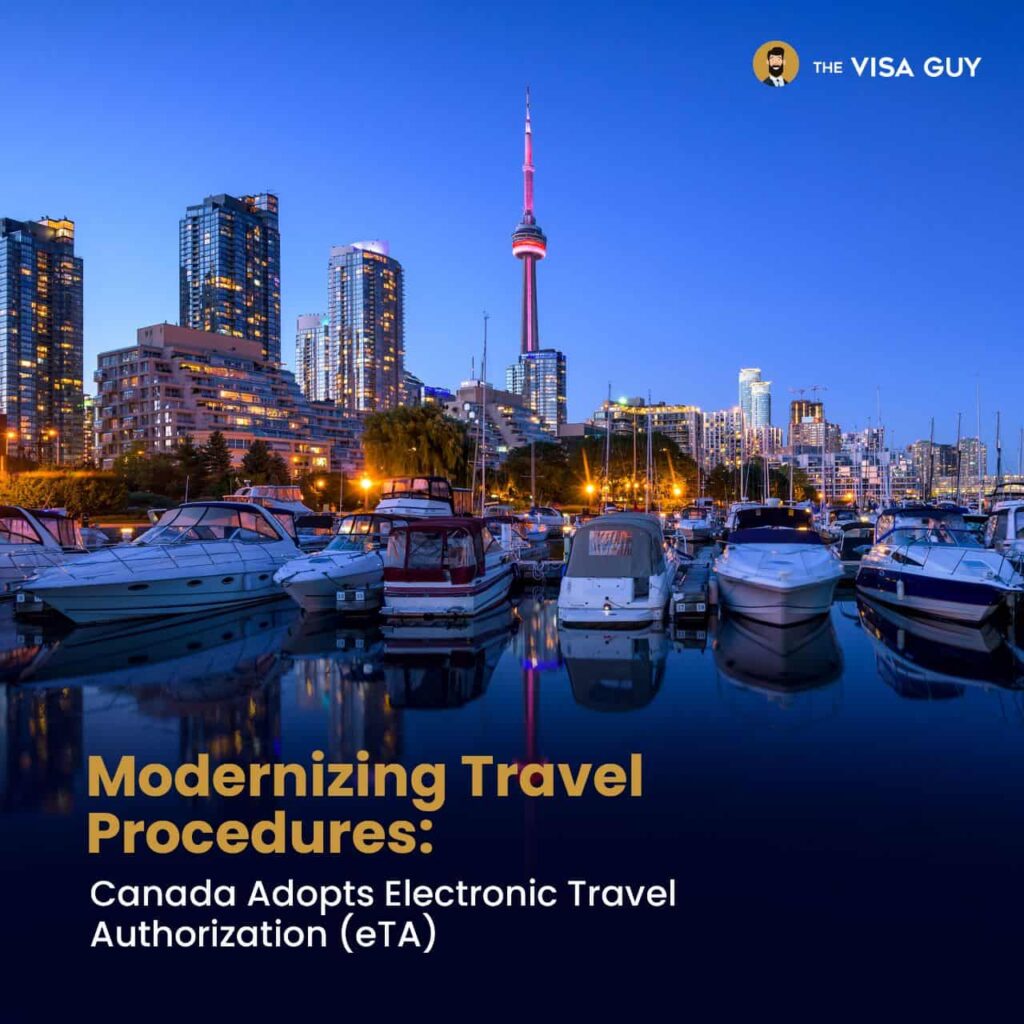In a move to enhance border security and streamline immigration processes, Canada has implemented the Electronic Travel Authorization (eTA) requirement for travelers. Visa-exempt foreign nationals flying to or transiting through Canadian airports are now required to obtain an eTA prior to their departure.
The eTA system aims to ensure a secure and efficient entry process for visitors, while maintaining the integrity of Canada’s immigration system. It is important for travelers to understand the eligibility criteria and the implications of this new requirement.
Under the new regulation, visa-exempt foreign nationals, hailing from countries that do not require a visa to enter Canada, must obtain an eTA if they are traveling by air. However, it is crucial to note that the eTA requirement does not apply when entering Canada by land or sea, such as by car, bus, train, or boat, including cruise ships.
Citizens from certain visa-required countries who are traveling to Canada by air now have the option to apply for an eTA instead of a traditional visitor visa. It is essential to verify the specific requirements based on the mode of transportation to ensure compliance and avoid any travel disruptions.
Canadian citizens, including those with dual citizenship, are reminded to travel with a valid Canadian passport. American-Canadians have the flexibility to use either a valid Canadian or U.S. passport for entry into Canada, depending on their preference.
However, Canadian permanent residents are exempt from the eTA requirement. They are not required to obtain an eTA or a visitor visa. Instead, they must carry a valid permanent resident card or permanent resident travel document when traveling.
It is important to clarify that permanent resident (PR) status in Canada does not expire.Travelers with uncertain immigration status are strongly advised to verify their residency status to avoid any travel delays or complications.
Certain travelers are exempt from the eTA requirement. U.S. citizens, including lawful permanent residents of the United States, do not need to obtain an eTA. They must, however, carry appropriate identification, such as a valid U.S. passport, when traveling to Canada. Lawful permanent residents of the United States are also exempt from the eTA requirement, provided they present a valid passport from their country of nationality (or an equivalent acceptable travel document) and a valid green card (or equivalent valid proof of status in the United States).
To enter Canada, visitors must meet a set of basic requirements, which include possessing a valid travel document, such as a passport, being in good health, having no criminal or immigration-related convictions, demonstrating ties to their home country, convincing a border services officer of their intention to leave Canada at the end of their visit, and having sufficient funds for their stay.
It is important to emphasize that the possession of an eTA does not guarantee entry into Canada. Upon arrival, a border services officer will examine the traveler’s passport and other relevant documents to determine their eligibility. Inadmissibility may arise if individuals are found to be involved in criminal activities, human rights violations, or organized crime. Travelers must comply with the immigration regulations and effectively demonstrate their eligibility for entry into Canada.
By familiarizing themselves with the eTA requirements and meeting the necessary criteria, travelers can ensure a smooth and hassle-free journey to Canada. This new measure is aimed at maintaining the safety and security of the country while facilitating legitimate travel and promoting tourism.



